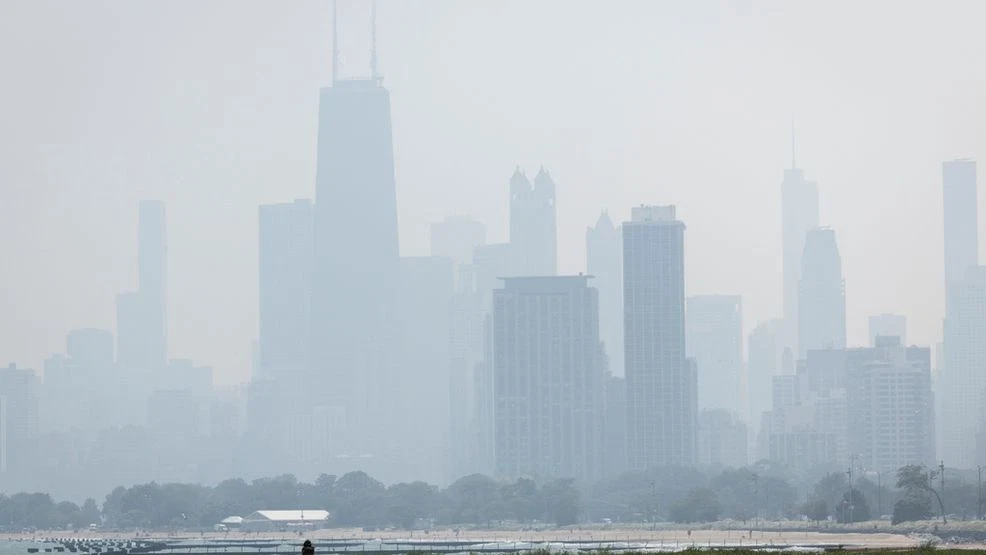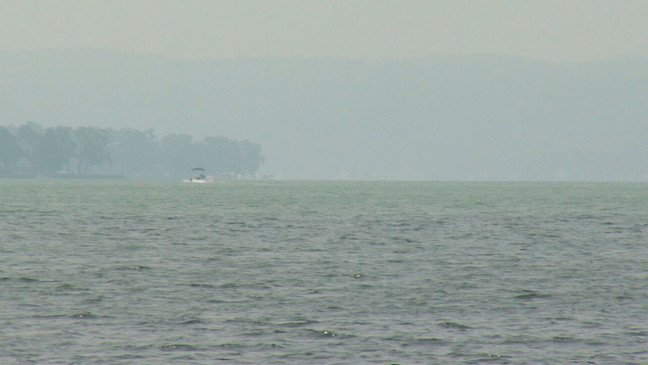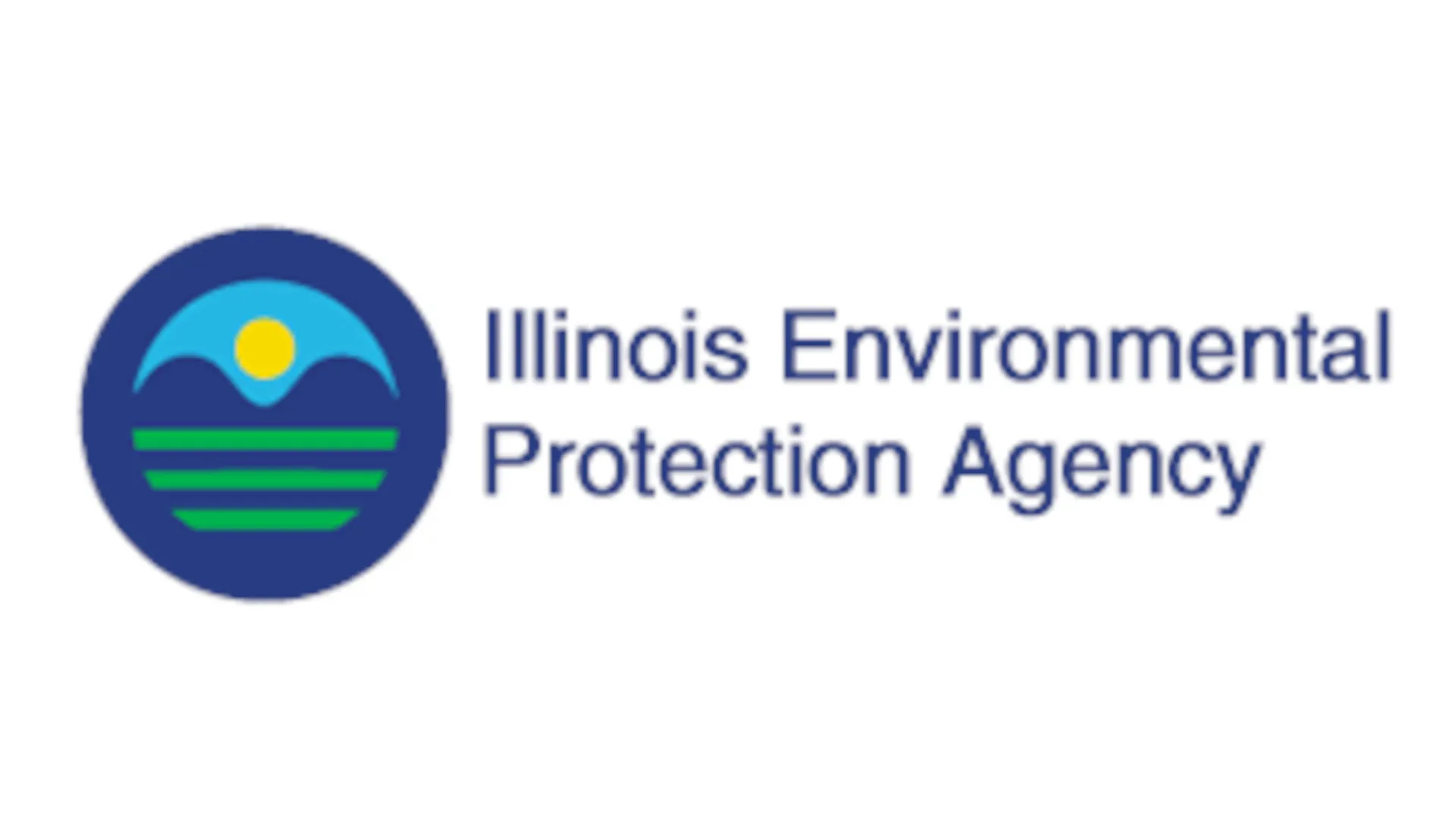CENTRAL ILLINOIS — A wave of Canadian wildfire smoke has drifted into the region, bringing hazy skies, reduced visibility, and air quality issues that could linger through Tuesday. As temperatures climb and storm chances increase, residents across Central Illinois are being urged to prepare for a range of weather disruptions.
The National Weather Service in Lincoln, IL, confirmed that smoke from ongoing Canadian wildfires is impacting the region, particularly areas west of I-55 like Springfield, Bloomington, and nearby rural counties.
What to Expect: Haze Through Tuesday, Storms by Midweek
- Sunday to Tuesday: Temperatures will steadily climb, starting in the upper 70s and reaching the upper 80s to near 90°F by Tuesday.
- Hazy Conditions: Visibility is expected to drop as surface-level smoke concentrations increase. The air quality index (AQI) may reach unhealthy levels, especially for people with respiratory conditions.
- Tuesday Night into Wednesday: A cold front is expected to arrive, potentially triggering scattered thunderstorms.
- Wednesday Night: Peak storm activity likely, with a 70% chance of rain and potential for strong to severe weather.
NWS Advisories and Public Health Warnings
Meteorologists have emphasized that the air quality impact may be temporary but noticeable, especially for sensitive groups. The National Weather Service recommends:
- Limiting outdoor activity during peak smoke exposure
- Staying indoors with filtered air if possible
- Keeping updated via weather.gov and local alerts
The agency is also monitoring cold front movement, which could heighten storm intensity as the air mass shifts midweek.
Why It Matters: Weather Disruptions Could Impact Travel and Health
These overlapping hazards — smoke, heat, and storms — could disrupt commuter traffic, outdoor activities, and create health risks for vulnerable populations.
With school events, construction projects, and summer travel beginning across the state, residents are urged to stay alert and adapt plans accordingly.
“Even short-term exposure to wildfire smoke can aggravate conditions like asthma or heart disease,” noted the Illinois Department of Public Health.
How are you preparing for this week’s weather rollercoaster? Do smoke alerts change your outdoor habits? Let us know your thoughts below.












